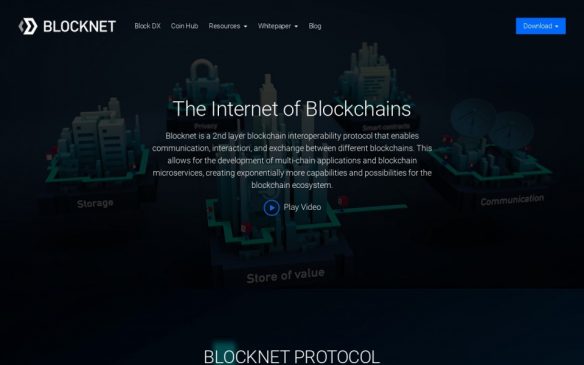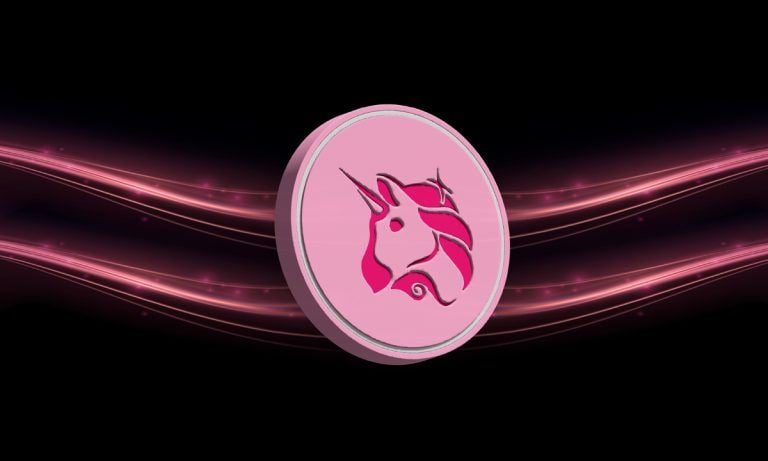Blocknet has released the beta version of XRouter, a blockchain router that will provide for multi-chain, lightweight dApps to harness contracts and protocols from different blockchains, allowing them to communicate and use each others’ specific features. XRouter lays the foundation for multi-blockchain architectures and an “Internet of Blockchains”.
XRouter is one part of the Blocknet Protocol, an infrastructure for a new era of cross-blockchain communication. The Blocknet Protocol enables the technologies on any blockchain to become available via decentralized APIs, creating a paradigm shift from monolithic architecture development to microservice architectures and heralds the internet of blockchains.
Developers are now able to utilize the best aspects of any chain instead of building and coding a new dApp from scratch. You will be able to develop applications on any blockchain and offer services that utilize features from other blockchains, essentially mixing and matching any blockchain you desire.
This means developers can occur on any chain and the features needed can be pulled in from other blockchains. XRouter allows access to any available RPC command without needing that blockchain installed locally, and is decentralized, there are no servers to be trusted. XRouter also enables the verification of blockchain records from theoretically any blockchain without requiring users to download the blockchain in question. XRouter was designed from the ground up to provide interoperability with ANY and ALL blockchains, including all DTLs (such as IOTA and Hashgraph) and private chains (such as Hyperledger or R3). There is no limit on the data XRouter can consume and verify – including any external data source in Oraclize.
XRouter is not limited in any way, shape, or form and is compatible with all blockchains. By allowing blockchains to integrate with each other (directly chain to chain, without being a middleman to the data itself), XRouter gives people, companies, industries, and developers the ability to utilize different blockchains for any dApp they desire and decentralizes the API ecosystem. You can download the Blocknet wallet with XRouter here. (In the future, the Blocknet wallet will not be required)
XRouter Design
XRouter works via an inter-blockchain SPV client (or “light wallet”) backend, enabling the verification of blockchain records from theoretically any blockchain. This is a huge leap forward in blockchain technology. The XRouter system utilizes the Blocknet Service Node network (currently almost 500 nodes) to route calls from the client directly to the respective blockchain. This routing of packets occurs on the TCP/IP networking layer. There are 2 types of XRouter calls: submissions and queries. Submissions are calls that involve interactions with a blockchain where the packets are routed from the client to the respective blockchain and a response, if any, is routed back to the client. XRouter queries are calls requesting information from a blockchain. With queries, the packets are also routed from the client to the respective blockchain, and the response of the information queried is routed back to the client. XRouter queries can also require a specific amount of Service Nodes to receive a response from in order to achieve consensus on the final answer. XRouter API details can be viewed here.
Monetize Enterprise Applications
XRouter allows for the monetisation of inter-chain and multi-chain services. There is the capability to create custom microservices in Docker containers that act as plugins for XRouter. This is the foundation for Blocknet’s forthcoming XCloud platform. Existing containers on Docker Hub (hub.docker.com), including a large number of Enterprise applications, can also be monetized and served through Blocknet’s XRouter interoperability protocol. Developers and Service Node operators will be able to test XCloud Docker applications in XRouter Beta.
Currently, fees must be paid in BLOCK, but in a future release, there will be the ability to accept fees in any asset. This will help increase adoption and create a seamless integration into any application.
So, what does this all mean for the Blockchain ecosystem? XRouter and XCloud are enabling both developers and Enterprise software products to integrate seamlessly with blockchains and accept cryptocurrency payments without having to re-code or change anything about those existing applications. For example, if you have a text messaging service or platform, you can connect your service in a matter of minutes to XRouter and begin collecting fees (in BLOCK) for users to send text messages via XRouter without requiring any signups or KYC. To use your text messaging service, a user could open their Blocknet console and send an XRouter command: xrService SendTextMessage 555–555–5555 “Hello, I’m texting you from XRouter”
Finally, Blocknet will be building GoLang and C++ libraries for accessing the XRouter network, so that developers can integrate with XRouter without requiring any Blockchains to be installed. This will allow 3rd parties, companies, and other crypto projects to integrate XRouter in their own chains and applications without installing the Blocknet wallet.
Developers Wanted For The Beginning Of A New Ecosystem
Blocknet enables the creation of a multitude of cross-chain dApps and multichain architectures only limited by developers imaginations. Developers can begin building dApps right now on multiple blockchains and platforms including Hyperledger, EOS, Ethereum, IOTA, Stellar, Cardano, Tron, XRP, Monero, IOTA, NEO, Vechain, NEM, Waves and many more. If you want to build for XRouter or have any questions, please join our Discord or check out our Reddit page. You can download the Blocknet wallet with XRouter here. (In the future, the Blocknet wallet will not be required).
By building on the Blocknet Protocol, and joining the “Internet of Blockchains,” developers will help to evolve a decentralized crypto-ecosystem with a trustless security model, which has the ability to monetize tokens native to any blockchain. In addition, the Blocknet Protocol allows over 100 digital assets to be traded on Block DX, a 100% decentralized exchange dApp built on the protocol where the ability to list an asset is open and free, and your funds are in your control at all times as no third party is ever involved. Cloudchain Inc. is currently implementing a fully decentralized lite (thin) multi-wallet utilizing Blocknet’s XRouter protocol.
To learn more about XRouter, Block DX and Blocknet, check out Blocknet’s website, API, documentation, Discord, and whitepaper.
- Graph Blockchain Implements IoT Sensors for the Agriculture and Cannabis Sector – April 23, 2019
- Blocknet Release Beta Version of Multi-Blockchain Router – XRouter – April 23, 2019
- Alt Thirty Six Raises $10 Million In Series A Funding For Cannabis Blockchain Payment Solution – April 23, 2019
- Nine Major Universities to Build Blockchain Solution for Digital Academic Credentials – April 23, 2019
- Blockmason to Launch Blockmason Credit Protocol Token (BCPT) on Binance Chain – April 23, 2019
- Vinny Lingham’s Blockchain Startup Civic Cuts New Deals with a Dozen Retail Partners – April 23, 2019
- 220 Partners at JPMorgan’s Blockchain Project – New Features – April 23, 2019
- SIM Card Swapper: 21-Year-Old Cryptocurrency Thief Gets 10 Years in US Prison – April 23, 2019
- Indian Central Bankers Excludes Cryptocurrency Projects from it’s New Startup Fintech Sandbox – April 19, 2019
- Enterprise Ethereum Alliance Plans to Launch New Token Taxonomy Initiative – April 19, 2019
- Social Blockchain Project BitGive Signs Deal with Uphold – April 19, 2019
- Crypto Wars Continue – Bitcoin’s Self Proclaimed Founder Craig Wright Threatens to Sue Ethereum’s Vitalik Buterin – April 19, 2019
- Gate.io Exchange Releases IEO Startup Platform and Launches First Project with CNNS – April 18, 2019
- Telegram Cuts Deal With Wirecard to Build Blockchain Shared Payment and Banking Solutions For TON – April 17, 2019
- Token-as-a-Service (TaaS) Shuts Down – Distributes Assets to Token Owners – April 17, 2019
- eToroX Launches 8 Stablecoins on New Cryptocurrency Exchange – April 17, 2019
- Powerhouse Production Company Endemol Shine International Partners with Blockchain Startup BitMovio – April 17, 2019
- Huobi Prime’s Second EO Launch – Two Billion NEW Tokens Sold in Six Seconds – April 17, 2019
- Panxora safeguards ICO assets with crypto treasury management service – April 17, 2019
- Turing Award Winner and MIT Cryptographer, Dr. Silvio Micali, Publicly Opens TestNet at VC-backed Algorand Blockchain – April 16, 2019






